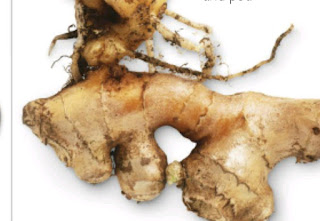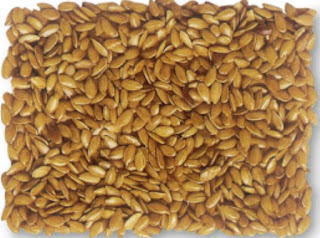9 BEST HERBS THAT PROTECTS THE HEART
Guarding the heart.
The highest care and attention should be given to the heart. Most parts and organs of our bodies have their counterparts, we have two eyes likewise our lungs, kidney, etc,.
We have but one heart, if damaged its damaged. The good news is that we need not suffer from heart related diseases if our heart is properly taken care of.
Listed below are herbs that demonstrated the ability to strengthen the heart in its work of ensuring proper circulation throughout the body.
TURMERIC: Turmeric is a bright golden colored spice.
Curcumin is the the active ingredient in turmeric that gives it its bright color.
Curcumin is a valuable remedy for allergies, arthritis, diabetes, psoriasis, etc,.
Curcumin in turmeric acts as an anti inflammatory agent by blocking several different inflammatory pathways and interfere with inflammation formation throughout the body.
Turmeric tends to reduce the risk of stroke and heart attack due to their lower cholesterol levels, thin the blood and counter inflammation. As a result, turmeric is a vital remedy for circulatory disorder.
GARLIC: Garlic is known for its pungent odor and taste which is due to the presence of allcin [a natural sulfoxide], it counters many infections including those of the nose, throat, and chest.
Clinical studies show that garlic has the ability to significantly reduce the formation of atherosclerotic plaque and by 20 percent lower the blood cholesterol level because of its vasodilating properties [blood vessels widening] as such reduces the risk of heart attack, stroke and other cardiovascular diseases, it also has antioxidant properties.
Ginger: it reduces the risk of blood clot, it’s platelet aggregation inhibitory activity is due to the presence of diterpenes. The anti-inflammatory effect of Ginger is thought to be due to inhibition of cyclooxygenase and 5-lipoxygenase, results in reduced leukotriene and prostaglandin synthesis.
Hawthorn: the main flavonoids from Hawthorn has the ability to enhance coronary flow, heart rate, left ventricular pressure and the velocity of contraction and relaxation. It also helps to pull fluids out of the heart.
CAYENNE: The main ingredient in cayenne is Capsicum, it has been found to induce increased fibrinolytic activity and simultaneously cause hypocoagulability of blood and it is a prophylactic therapy for arteriosclerosis, stroke and heart disease. It is a tonic, stimulant and improves circulation.
FLAXSEED: It is useful for the reduction of cholesterol levels in the liver (due to the unsaturated omega 3 fatty acids). A blood sugar lowering effect was also proven. The antitumo- ral effect is attributed to the lignans (lignans are antimycotic, anti-oxidative and anti-estrogenic). Triglycerides reduces hardening of arteries, increases high-density-lipoprotein and reduces blood platelet stickiness.
GRAPE SEED EXTRACT: The oxidation of low-density lipoproteins (LDL) by free radicals is associated with the initiation of atherosclerosis. Proanthocyanidin contained in grape decreases the number of LDL-positive macrophage-derived foam cells in atherosclerotic lesions. The compound also inhibits the oxidation of cholesteryl linoleate in LDL to exert a reduction in atherosclerosis of the aorta,as such reducing the risk of heart attack and stroke.
PSYLLIUM: Psyllium increases choles- terol and bile acid fecal excretion but does not affect cholesterol synthesis. Psyllium may lower serum cholesterol levels by replacing dietary fats, thereby reducing the amount available for absorption, and not directly affecting cholesterol.A decrease in low-density lipoprotein (LDL) cholesterol levels and total cholesterol
ONIONS: They are natural anticlotting agents. They inhibit thrombosis [blood clot formation] and are blood thinners due to the presence of sulfur compounds in them.
References
1. PDR for herbal medicines
2. Swain JF; Rouse IL; Curley CB; Sacks FM. Comparison of the effects of oat bran and low-fiber wheat on serum lipoprotein levels and blood pressure. N Engl J Med 1990 Jan 18;322(3): 147-52.
3. Schwesinger WH; Kurtin WE; Page CP et al. Soluble dietary fiber protects against cholesterol gallstone formation. Am J Surg 1999 Apr;177(4):307-10.
4. Seggev JS; Ohta K; Tipton WR. IgE mediated anaphylaxis due to a psyllium-containing drug. Ann Allergy 1984 Oct;53(4):325-6.
5. Spence JD; Huff MW; Heidenheim P et al. Combination therapy with colestipol and psyllium mucilloid in patients with hyperlipemia. Ann Intern Med 1995 Oct l;123(7):493-9.
6. Swain JF; Rouse IL; Curley CB; Sacks FM. Comparison of the effects of oat bran and low-fiber wheat on serum lipoprotein levels and blood pressure. N Engl J Med 1990 Jan 18;322(3): 147-52.
7. Tomoda M et al., (1987) Planta Med 53(1 ):8.
8. Turnbull WH: Thomas HG. The effect of a Plantago ovata seed containing preparation on appetite variables, nutrient and energy intake. Int J Obes Relat Metab Disord 1995 May;19(5):338-42




















No comments:
Post a Comment